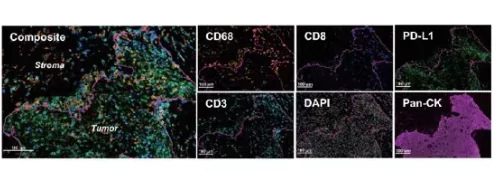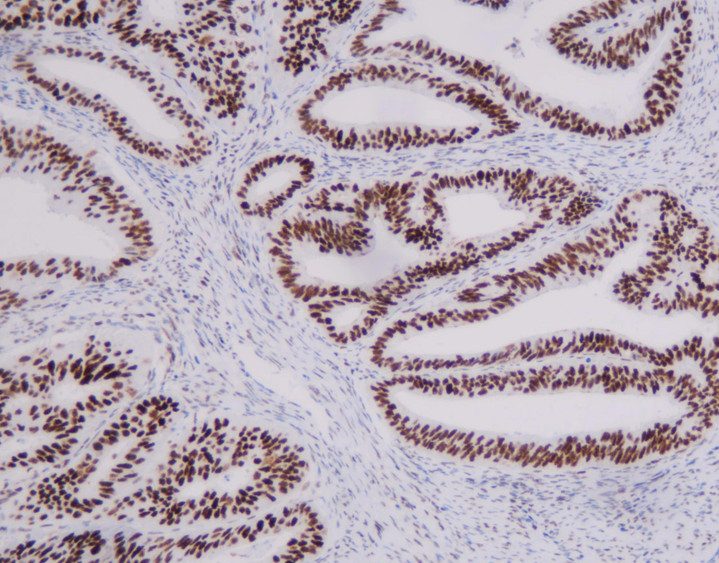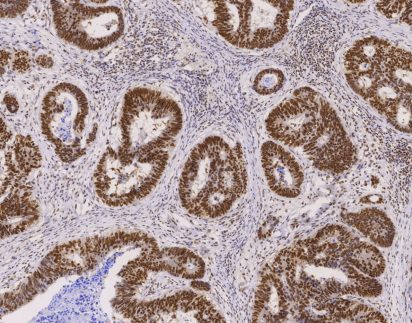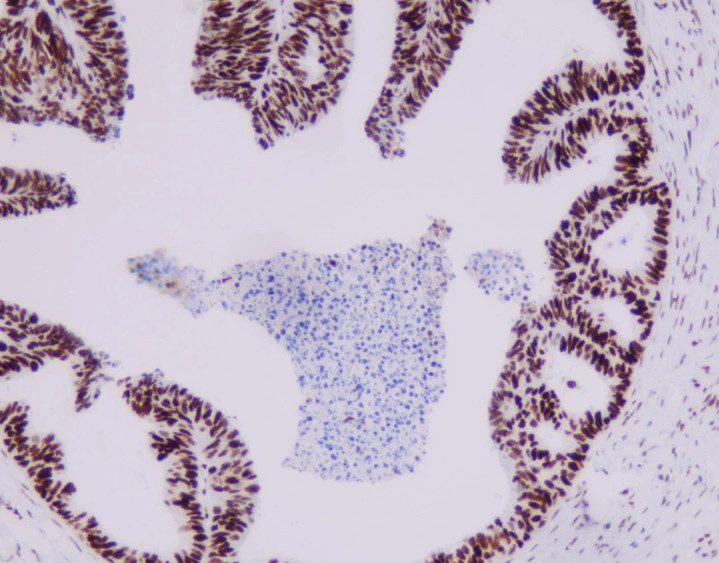What Are Multiplex Immunohistochemical Kits (mIHC) Used For?
2024-10-08
By admin
Multiplex Immunohistochemical Kits (mIHC) are invaluable in immunology studies as they enable the simultaneous detection of multiple biomarkers in a single tissue sample. This advanced technology provides valuable insights into tissue microenvironments and greatly contributes to the development of diagnostic methods and treatment strategies. By utilizing m IHC, researchers gain a deeper understanding of diseases such as cancer, as it reveals the intricate interactions between different cellular elements. This cutting-edge tool plays a crucial role in advancing our knowledge and improving patient care.
Exploring mIHC Technology
Multi-color immunohistochemistry (m IHC) is a cutting-edge technology that combines the method of immunohistochemistry (IHC) with the ability to analyze multiple proteins simultaneously in a single process. This innovative approach involves using antibodies labeled with chromogenic signals to observe multiple targets in a single tissue sample. By utilizing m IHC, researchers can gather valuable information about signaling pathways and interactions without the need for repeated testing on different sections. Moreover, this optimized utilization of samples helps conserve valuable tissue for other important tests.
Key Advantages of Using mIHC in Tissue Studies
The main benefit of mIBC lies, in its ability to offer a perspective on tissue structure and function by examining biomarkers concurrently An enriched dataset is gathered by researchers which sheds light on the biological background of illnesses Additionally mIBC decreases the inconsistency linked with executing single IHC tests resulting in enhanced uniformity and dependability in outcomes The capacity to study the connections, among biomarkers facilitates better comprehension of disease processes aiding in personalized treatment strategies.
How Do Multiplex Immunofluorescence Kits Revolutionize Cancer Research?
Multiplex immunofluorescence kits are changing the landscape of cancer research by allowing the detection of biomarkers, in a single sample using mIHC technology. This advancement does not improve our comprehension of cancer biology. Also maximizes the utility of scarce tissue specimens.
Role of mIHC in Labeling Multiple Biomarkers
The field of mIHC is essential, for identifying a variety of biomarkers related to cancer biology simultaneously and visualizing proteins that impact diagnosis and treatment outcomes for patients as a whole significantly improves precision medicine efforts by categorizing tumors based on protein co-levels for more effective therapy stratification researchers and clinicians can gain valuable insights, into the tumor microenvironment and make informed clinical decisions.
Enhanced Performance in Cancer Immunotherapy
The knowledge acquired from mucus IHC (immunohistochemistry) has significantly impacted the development of cancer immunotherapy approaches. Mucus IHC offers a perspective, on tumor indicators and interactions between cells that can help in pinpoint predictive biomarkers predicting treatment outcomes. Such data plays a role, in choosing the immunotherapeutic medications and adapting personalized treatment strategies as needed. Moreover, a deeper understanding of the tumor microenvironment obtained through biomarker examination enhances the effectiveness of combined therapies. Helps overcome resistance to treatments.
The demand, for methods is increasing steadily nowadays and Celnovtes Multiplex Immunohistochemical Kits provide researchers with a reliable solution for this challenge. Celnovte is known for creating cutting-edge mIHC kits that combine top-notch materials with user features to simplify laboratory processes. These kits are crafted to aid researchers in achieving accuracy, in their immunology studies by making biomarker analyses while maintaining high standards of quality.
Celnovte is dedicated to pushing forward research, in immunology by offering researchers complete solutions. Their knowledge, in creating antibodies paired with state-of-the-art technology allows for the development of customized mIHC protocols to suit research requirements. By providing the community with resources that improve the quality and accuracy of data Celnovte enables researchers to speed up their findings and attain outcomes.
Researchers can maximize the benefits of multiplexing technology by using Celnovtes Multiplex Immunohistochemical Kits. This advanced tool not only enhances diagnostics and treatment plans but also deepens our knowledge of intricate biological processes.
The continuous progress, in cancer treatments and testing methods, highlights the growing importance of incorporating cutting-edge solutions such as Celnovtes mIHC kits to enhance research and medical results. Adopting this technology plays a role in pushing forward the realm of immunology while also leading to enhancements, in patient treatment and tailored healthcare services.
What Is the Role of mIHC Kits in Immune Cell Analysis?
Multiplex Immunohistochemical Kits (mIHC kits) play a role, in analyzing the number of cells (known as tumor-infiltrating lymphocytes or TILS). These kits help researchers precisely determine the quantity and positioning of TILS within tissues—an aspect of understanding how the immune system responds to cancer and its impact on patient outlook. Through mIHC kits, use comes the ability to gather information about TIL populations and their characteristics—a way to explore the immune setting, within a tumor’s environment.
Furthermore, multiplex immunohistochemistry (mIHC) allows for the observation of indicators linked to tumor-infiltrating lymphocytes (TILs). This capability offers an examination of cell behavior and provides insights, into the interactions between different subsets of TILs and cancer cells. The in-depth insights obtained from assessments are crucial, in shaping tailored treatment approaches that align with the immune makeup of individual tumors.
Objective Data Collection for Immune Context
The detailed gathering of data enabled by m IHC kits plays a role, in offering insights into how the immune system responds within tumors. With a method in place, m IHC offers a range of important biological data on cell interactions spatial arrangement, and biomarker expression in tissue samples. This enables an understanding of the interplay between tumors and immune cells providing valuable information, on immune evasion and activation mechanisms.
Moreover ” mIHC kits play a role, in validating biomarkers that can guide treatment decisions.” Through analyzing profiles in tumor types and stages ” scientists can discover correlations between immune responses and treatment effectiveness.” This data-driven approach simplifies the interactions between cells and tumors, into measurable findings ” empowering you to create impactful immunotherapy strategies.”
How Do Multiplex IHC Kits Advance Cellular Research?
Multiplex Immunohistochemical Kits enhance the efficiency of tissue analysis by enabling you to work with resources while achieving data results. It saves time and costs in labs by evaluating biomarkers in a tissue section rather than performing individual IHC assays separately. This approach streamlines the process. Conserves resources compared to conducting assays one, after another.
Moreover, when you use immunohistochemistry, in your studies there is a reduction in the number of biological samples needed This advantage becomes crucial especially when dealing with scarce or restricted specimens where maintaining the integrity of samples is crucial Consequently immunohistochemistry kits not only boost efficiency in labs but also maximize the use of resources presenting a strong economic edge, in research environments.
Standardized Quantitative Analysis for Consistency
When using mIch kits for analysis, in labs like yours ensures that the results are stable and trustworthy every time you conduct experiments consistently following procedures and including controls within the mICH approach helps reduce inconsistencies that usually occur with IHC techniques This uniformity plays a crucial role, in ensuring research findings can be replicated accurately making it an essential aspect of scientific studies.
Furthermore, results obtained from immunohistochemistry (m IHC) improve the comparability of data, across studies. o. Similarly enabling trust in the results of experiments and facilitates cooperation between research organizations with shared interests. Hemes s.As you incorporate m IHC into your studies. The uniform approach aids in strengthening trust across the scientific community and promotes a deeper collective comprehension, within the field of immunology research. Research.
To sum up, the discussion, about Celnovtes Multiplex Immunohistochemical Kits highlights the impact of mIHC technology on immunology research. The provision of analysis tools, by Celnovte allows researchers to extract valuable findings from their studies enabling the progress of personalized healthcare and customized treatment approaches based on individual patient characteristics.
Why Choose Celnovte’s Multiplex Immunohistochemical (mIHC) Kit?
Celnovte has established itself as a pioneer in immunology research through its innovative Multiplex Immunohistochemical Kits (mIHC). These kits are engineered to meet the complex demands of researchers, providing meticulously developed solutions that enhance the study of multiple biomarkers in tissue samples. Each mIHC kit is designed to facilitate the simultaneous detection of various proteins, empowering investigations that reveal intricate biological interactions and disease mechanisms. With a commitment to quality and user-friendliness, Celnovte ensures that every researcher can maximize their productivity without compromising the integrity of their research.
Cutting-edge technology and High Throughput Capabilities
The mic kits, from Celnovte, incorporate state-of-the-art technology to simplify the immunohistochemical analysis process They enable researchers to handle several samples quickly compared to multiplex methods and Harness the advanced chromogenic detection systems by Celnovte to ensure consistent results These kits not only improve workflow efficiency but also facilitate the examination of extensive datasets necessary for addressing intricate research queries, in the immunology field.
Applications Across Various Research Fields
The malleability of Celnovtes mIHG kits spans across fields of study such, as cancer research and brain studies alongside immunology research projects too! These kits are beneficial for delving into the intricacies of tumor environments and immune reactions to understand complex disease processes better! By enabling the analysis of biomarkers in one go researchers can uncover significant protein interactions that might impact disease progression or treatment effectiveness. With its array of applications, it is clear that mIHG kits from Celnovte are a resource, for scientists seeking to make groundbreaking discoveries across different areas of expertise.
Benefits of Using Celnovte’s mIHC Kit
When utilizing Celnovtes Multiplex Immunohistochemical Kits, researchers can expect improved accuracy and consistency in their experimental results. The standardized procedures included in the kit are specifically designed to minimize variation, ensuring that findings are reliable and consistent across multiple tests. This level of accuracy is particularly crucial in research projects aimed at understanding complex biological processes, as even slight differences can have significant implications. As a result, scientists can have full confidence in the reliability of their data, providing a solid foundation for future studies or potential clinical applications.
Celnovtes mIHC kits also offer a cost-effective solution for tissue analysis by enabling the simultaneous examination of multiple biomarkers in a single experiment. This approach not only saves time and resources typically required for individual tests but also reduces reagent expenses and minimizes the consumption of valuable biological samples. This affordability makes it an attractive choice for laboratories. Furthermore, the ability to gather comprehensive data with limited resources allows for in-depth exploration of the underlying biological mechanisms of various diseases, enhancing research outcomes and promoting financial efficiency simultaneously.






